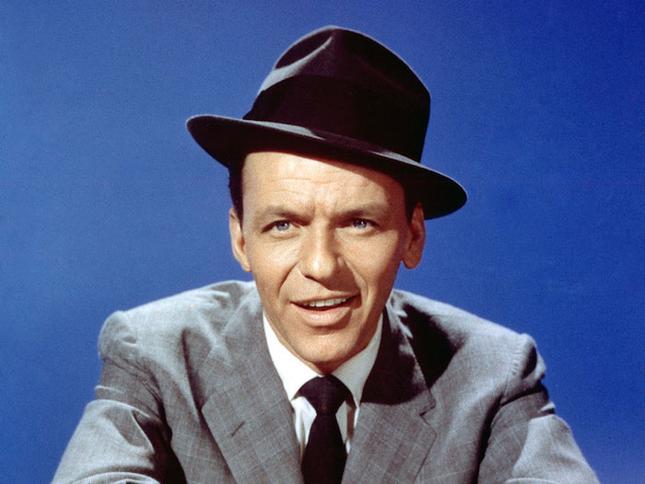Sinatra Tribute Concert at Kennedy Center Gathers the Old, Fans and Fun
By • June 22, 2015 0 1371

People talk a lot about the Greatest Generation, that generation of Americans who lived through the Great Depression and World War II. Every year, the World War II Memorial becomes a celebratory site of veneration and commemoration for dwindling numbers of veterans of the war, many wearing uniform jackets and medals from campaigns across world-wide theaters of combat.
Last weekend at the Kennedy Center’s Concert Hall, a different and still lively group of members of that generation—maybe they were all the same—helped fill the hall to capacity for town. Some surely must have been veterans, but most of them came not to remember the war but the songs and music that accompanied them through the war and beyond—and the one man who sang those songs to perfection to the point of being unforgettable.
They came to hear the songs and music of Frank Sinatra in a two-night program, “Let’s Be Frank: The Songs of Frank Sinatra,” by the National Symphony Orchestra Pops and its director Steven Reineke.
This was their music, some of it sung by a remarkably skinny kid from Hoboken, who arguably became America’s first teen idol and vocalist as superstar. Later, that very same man transformed into a sophisticated, tipped-hat, cool guy, movie star and catnip for the ladies and crooned unforgettable and emotionally true songs from the Great American Songbook. That later incarnation was Frank, the cool leader of the Rat Pack, the soulful male torch singer of rueful romance at three in the morning.
They knew and, more importantly, remembered their man and their own lives. “I was 15 when I heard him for the first time,” an 87-year old lady told us. Sitting in front of me, two women snapped their fingers through many of the songs, in tempo. Some of them were frail, and some had walkers, but all of them made it to their feet when singer Storm Large sang “My Way” and did it her way.
Reineke, who is the epitome of pops conductor as pied piper, led the proceedings orchestrally through “New York, New York” and “Mack the Knife.” Then, he introduced, one by one, and bore the responsibility of carrying the program through the canon of Frank Sinatra. Maybe not everybody appreciated over a long career and life the personality of Sinatra, but nobody had ever had the gall to disavow his singing the songs that were as clean as as a cold Scotch on the rocks.
Frankie Moreno, Tony DeSare and Ryan Silverman all carried themselves, each in their own way as youthful versions of Sinatra—a little snap of fingers, light feet, the stance, the pop of classic pop music and each had his own version of fizz. Moreno nailed the accepting defiance not far from the surface of “That’s Life,” and DeSare had a real soulful touch for “Night and Day,” “My Funny Valentine” and “I Have Dreamed” from “The King and I.” Silverman added sheen and silver to the longing “Moonlight Becomes You.”
Moreno, DeSare, Silverman, Broadway and lounge stars all, had a cross to bear, which is that they were singing in the shadow of the Chairman of the Board.
Storm Large, a remarkably original singer with a pedigree that goes from rock to torch in a rueful heartbeat, had no such goal. She could be entirely herself, which is a tall, almost regal, blonde woman with a rangy voice and do the songs justice. She didn’t wrestle with them. She didn’t parse and spin. She just sang: “The Best Is yet To Come,” “Come Rain or Come Shine” and, of course, “My Way.” Large sang those songs not with Sinatra stylings, but with Sinatra’s gift for getting to the heart of an emotion.
That was some generation, that generation. That was some music that generation lived, worked, fought and swayed to in a ballroom.

